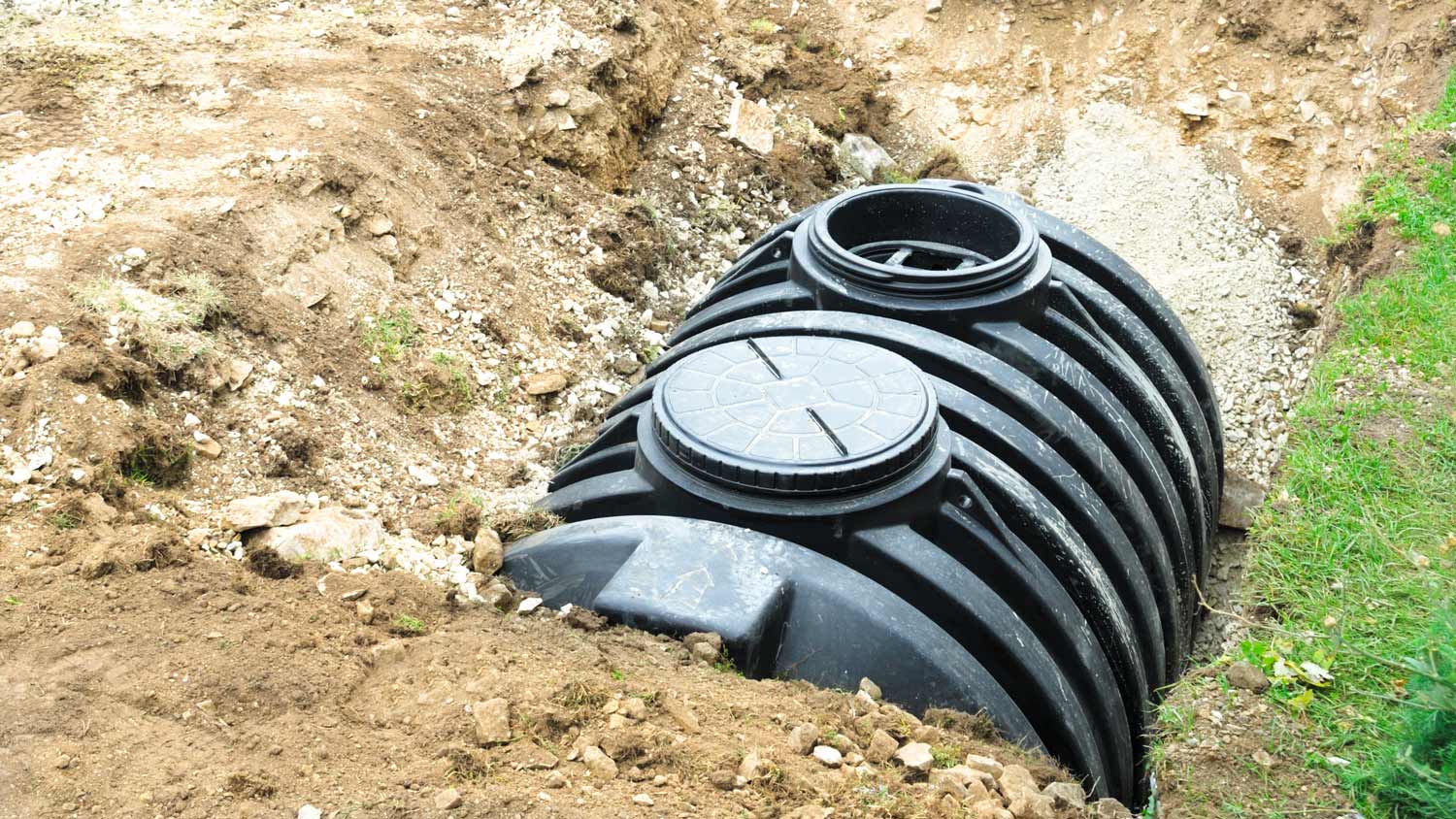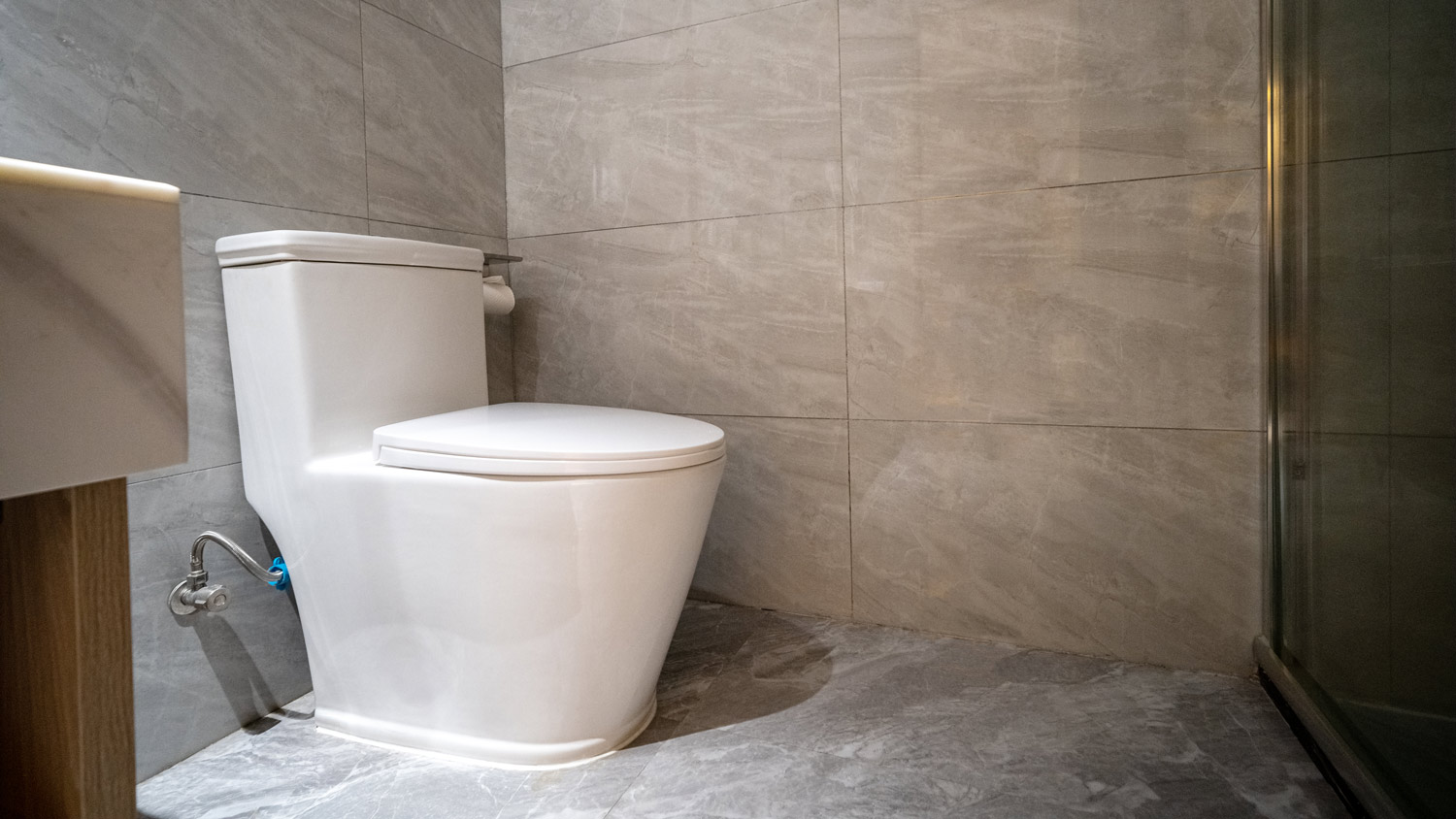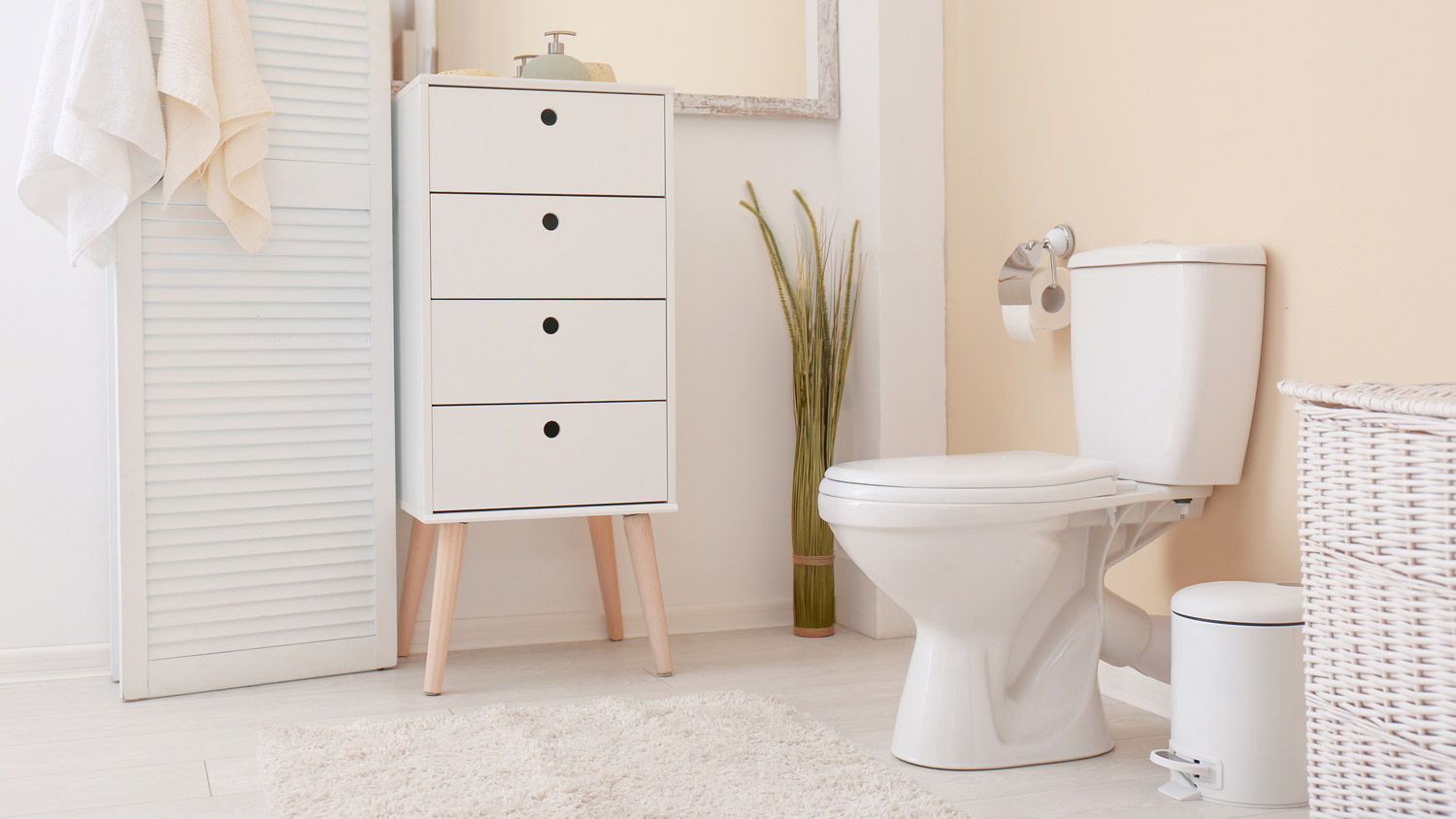
The average cost to connect to a public sewer line can vary depending on the linear foot, piping material, local regulations, and more.
Septic tanks don’t have to be scary (or smelly)


Septic tanks are an important part of residential septic systems.
They’re typically found in rural areas and places without access to public sewage systems.
Septic tanks collect wastewater from the plumbing fixtures in your home.
Bacteria inside the tank eat the solid waste, while wastewater seeps into your soil.
There are pros and cons of using a septic tank for waste removal.
Moving to the countryside comes with plenty of perks—less traffic, fewer neighbors, and more peace and quiet. But there are also some things about rural living that might not be as appealing, including having to use a septic tank instead of being connected to the public sewer system. However, while septic tanks might not have the best reputation, they aren’t necessarily a bad option (and depending on where you live, they may be the only option). Let’s look at some of the pros and cons of residential septic systems.

As part of a larger septic system, a septic tank collects waste and water from all of the plumbing fixtures in your home, including your toilets, sinks, showers, and washing machine. (By the way, there are several types of septic systems, but for the purposes of this guide, we’ll focus on conventional anaerobic systems).
Septic tanks originated in the mid-19th century, and they’re still widely used today. In fact, according to the Environmental Protection Agency (EPA), about 20% of all U.S. homes run on a septic system.
Usually, your septic tank will sit underground, but if your yard isn’t big enough or doesn’t have the right type of soil, you might need an above-ground septic tank.
Whenever you flush your toilet, do a load of laundry, or take a shower, the waste and water flow down your pipes and into your septic tank. At this point, the solid waste (known as “sludge”) sinks to the bottom of the tank, while grease and oils (called “scum”) float to the top. In the middle, there’s a layer of wastewater (or “effluent”).
The wastewater flows out of the tank and into a set of drainage pipes, which sit underneath your yard in an area known as the drain field. These pipes have holes, which slowly release water into the ground. The soil filters out harmful bacteria in the wastewater before it reaches the groundwater beneath it. Meanwhile, naturally occurring bacteria inside the septic tank break down the solid waste.
Depending on where you live, you might not have a choice in whether or not your house uses a septic tank. Regardless, it’s important to understand the advantages and disadvantages of these systems. Are septic tanks bad? Not necessarily, but they might not be the right choice for you and your home if you feel the cons outweigh the pros.
You can save money: If you have a septic tank, you won’t have to pay to access the public sewer system, saving you money on your utility bills.
Septic tanks are better for the environment (as long as they’re well-maintained): Anaerobic septic systems use soil to naturally filter out harmful bacteria from wastewater before going back into the groundwater supply.
You have more flexibility in where you live: By being open to using a septic system rather than the public sewer system, you’ll have more options when choosing a place to live.
You’ll need to pay for septic tank maintenance: This includes having your septic tank inspected and pumped every two to five years.
If your septic system leaks or overflows, it can contaminate your drinking water: Harmful chemicals and pathogens can escape from damaged pipes and seep into the groundwater, potentially contaminating your well water. This is why good septic maintenance is vital.
Your tank will need to be replaced at some point: With good care and regular maintenance, your septic tank can last 20 to 30 years, but eventually, you will have to replace your septic tank.
Before you move into a house with a septic system, it’s important to understand how much you can expect to spend on maintaining it. Pumping the waste from your tank is the most predictable expense you’ll have, and septic tank pumping costs around $400. You’ll want to have your system pumped every three to five years. It’s also a good idea to schedule a professional inspection every two to five years (and that usually runs between $100 and $200).
If you think that there might be a problem with your septic system, you should hire a local septic tank company to check it out as soon as possible. Ignoring septic concerns could lead to several problems down the road, including water contamination and pricey repairs. Here are some of the most common signs that your septic system isn’t working properly:
It smells like sewage inside or outside your home.
There is standing water or dampness on top of your drain field.
Your tubs, toilets, and sinks are backed up or drain slowly.
You hear gurgling sounds in your pipes or other parts of your septic system.
On average, septic system repairs cost about $1,790, but they can range from around $630 to $2,970. If the damage is extensive, you might need to replace the entire septic system, which generally costs about $7,300.
From average costs to expert advice, get all the answers you need to get your job done.

The average cost to connect to a public sewer line can vary depending on the linear foot, piping material, local regulations, and more.

The average cost to connect to a public sewer line in Columbus, OH, depends on the linear footage, piping material, local regulations, and more.

Need to know what sewer line replacement costs in Chicago, IL? This guide will help you prepare to budget for sewer line replacement done by local contractors.

Need to know what sewer line replacement costs in Dallas, TX? This guide will help you prepare to budget for sewer line replacement done by local contractors.

Septic tanks are kept underground, so checking the levels inside can be a challenge. Learn how to check if a septic tank is full with this guide.

Odor problems in the laundry room? We discuss why your washing machine smells like sewage and how to fix those stinky plumbing issues.